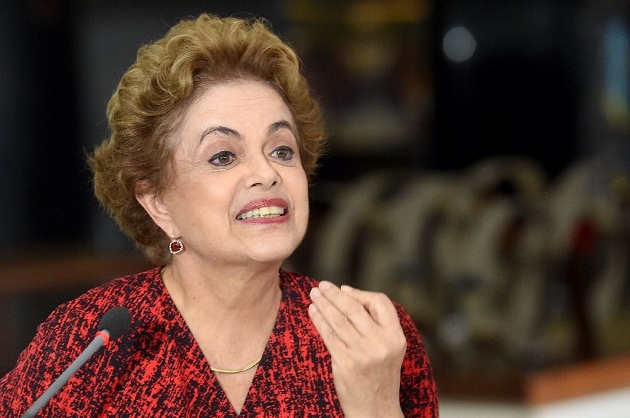
Rio de Janeiro, Brazil | AFP | Brazil is bubbling over the release of a recording that purports to show President Michel Temer approving payment of hush money to a politician jailed for corruption.
In a matter of days, eight lawmakers have called for impeachment proceedings against the president, the Supreme Court opened a formal probe into the case, and the attorney general’s office asked the court to charge Temer with obstruction of justice.
And the Supreme Electoral Court is processing a complaint that could lead to the annulation of 2014 presidential elections in which Temer was the vice presidential candidate of incumbent president Dilma Rousseff, who won re-election in that vote.
The court’s ruling could prove decisive for the man serving out the remainder of Rousseff’s term after her impeachment and removal from office last year.
– Succession mechanisms –
If Temer were to leave office for any reason, since he is in the second half of the current presidential term, the constitution provides for a 30-day period during which the speaker of the lower house is in charge, followed by indirect elections in which lawmakers pick the next president.
That new leader — who could be anyone, although they would have to approved by the Supreme Court — would serve out the remainder of Temer’s term, which ends in late 2018.
So for such a 30-day, post-Temer period, in principle the presidency would fall to the speaker of the Chamber of Deputies, Rodrigo Maia of the rightwing DEM party.
But some people are objecting to Maia becoming the acting president, among other things because he is under investigation as part of the huge pay-to-play scandal that has engulfed the state-run oil company Petrobras.
The same objections have been raised against the next person in the line of succession, the president of the Senate, Eunicio Oliveira.
After him, next in line is the chief justice of the Supreme Court, Carmen Lucia.
One idea that has been floated is to hold direct elections for a new president.
But this would require a constitutional amendment that would have to be approved by a two-thirds majority in both chambers of the legislature.
And lawmakers so far have expressed no interest in giving up control over the process of succession.
People who support this idea of direct elections question the legitimacy of a Congress in which dozens of lawmakers are under investigation for corruption.
And they also cite an amendment in 2015 to Brazil electoral law to the effect that when an elected official loses their post because of alleged wrongdoing that ends up in court, a fresh election is held to replace that person.
– Scenarios –
These are the possible outcomes that are triggering the most debate:
RESIGNATION
Temer has categorically ruled out stepping down, but pressure for him to do so is increasing as allies abandon him. O Globo newspaper has said in an editorial that Temer “has lost the moral, ethical, political and administrative conditions for staying in power.”
It added that if he stays in power, this would threaten the pro-market reforms Temer is implementing to pull Brazil out of a deep recession.
The financial daily Valor has reported that Finance Minister Henrique Meirelles has said that no matter how the crisis ends, he will stay in the government.
IMPEACHMENT
This could take months. If Maia were to accept any of the requests for Temer to be impeached, this would have to go through congressional committees and then be approved in the Chamber of Deputies and the Senate.
CRIMINAL PROCEEDINGS
This possibility was opened up by the obstruction of justice complaint filed by the attorney general’s office. But in order to study this complaint, the Supreme Court needs permission from the Chamber of Deputies in a two-thirds majority vote. And if the court concludes there are grounds to charge Temer, he would be removed from office.
PROCEEDINGS IN ELECTORAL COURT
A nearly forgotten court case involving alleged illegal financing of the Rousseff-Temer ticket in the 2014 presidential election could end up resolving the Temer affair. The Supreme Electoral Court resumes debate on the case June 6 with three days of hearings. Any of the justices can ask for a delay and any sentence handed down can be appealed. Still, some say the court might move quickly because of pressure from this new crisis in Brazilian politics.
 The Independent Uganda: You get the Truth we Pay the Price
The Independent Uganda: You get the Truth we Pay the Price





